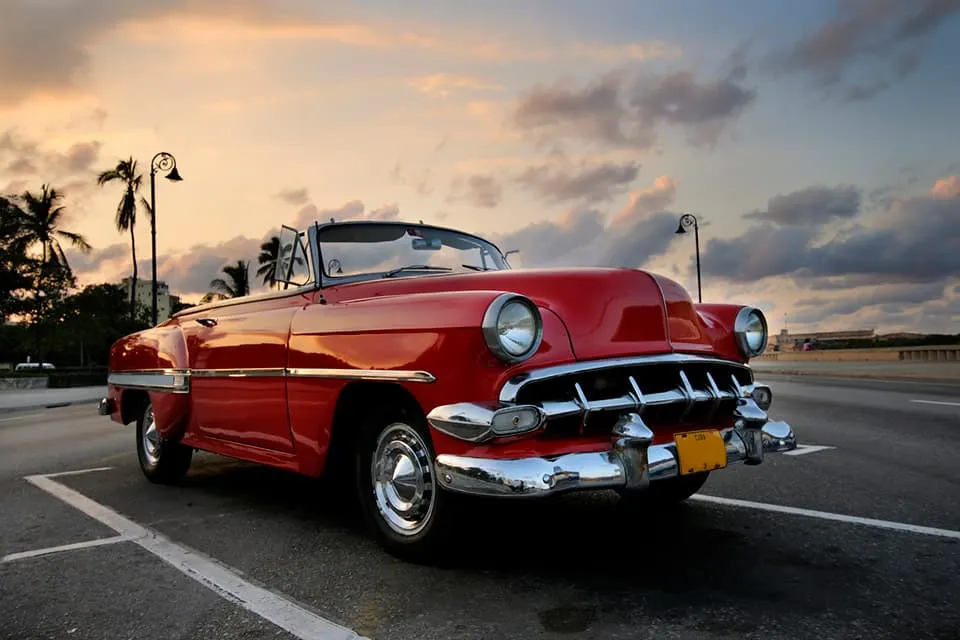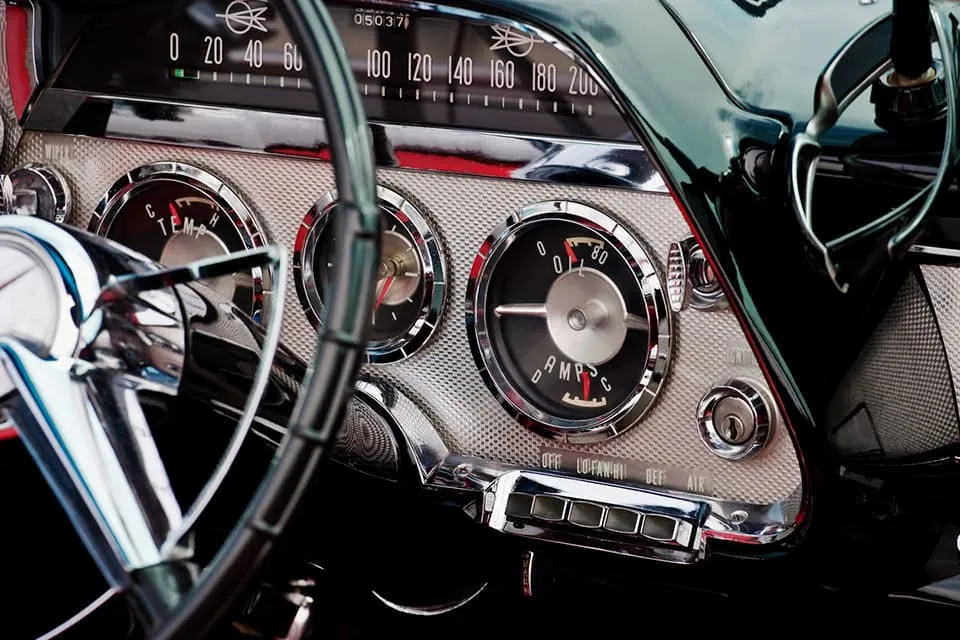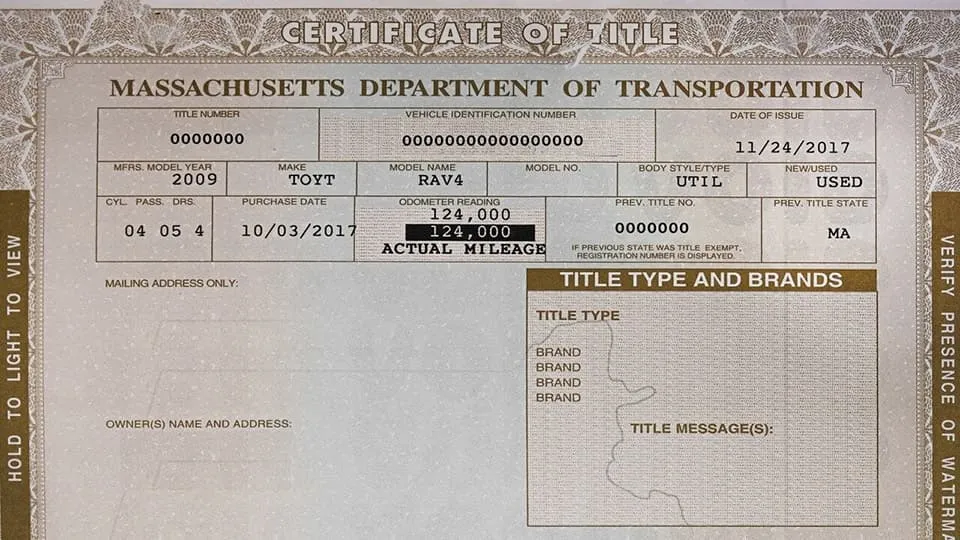- When Is A Car Considered Classic or Antique And How To Get One?
- What Is Considered a Classic Car?
- When Is a Car Considered An Antique?
- How To Get a Title for a Classic or Antique Car?
- Antique and Classic Vehicle Frequently Asked Questions
- Where Can I Find More Information About My Classic/Antique Vehicle?
When Is A Car Considered Classic or Antique And How To Get One?

The Statistic Research Department estimates that the global classic car market will grow over 13 billion dollars by 2024. With classic and antique cars growing in popularity, you may be considering getting yourself a shiny new (or in this case, old) ride.
Getting the car of your dreams can be a huge achievement, but paperwork can be a drag. With classic or antique cars, getting the right title is essential to making your vehicle street legal. So what's the difference between these two vehicle classifications, and do they require different car titles?
What Is Considered a Classic Car?
A vehicle is considered a classic once it has met a set of criteria set by the state it's registered within. For most states this means keeping the vehicle in a certain condition, likely matching its original specifications and design. If the car is restored, the restoration must be an effort to return the car to its original build. This means you can't add new technology to the vehicle, like an updated sound system, heated seats, or added GPS navigation.
How Old Does a Car Have to Be to Be a Classic?
The definition of what makes a car classic varies depending on what organization or agency is classifying the vehicle. For insurance purposes, a car that wants to attain a "classic car" classification must have been manufactured between 20 and 40 years ago, though these laws can vary from state to state. These insurance rates on these cars can often be lower than the norm, mostly due to insurance companies expectations the vehicle will be driven far less than a normal commuter car.
When Is a Car Considered An Antique?

The classification for an antique car is a bit different than a classic, though they do share some similarities in restoration requirements. Much like a classic, no modern parts can be put into an antique car, and all restoration attempts should be made with the goal of returning the vehicle to its original manufacturer specifications. Classic vs antique cars begin to differ when it comes to their historical status. Again, this differs from state to state, but depending on what your area defines as antique your vehicle may receive a variety of titles including:
- Antique
- Classic
- Vintage
- Historic Vehicle
- Horseless Carriage
- Collector Car
Check your local DMV or DOL website to see what these requirements are, and whether your vehicle qualifies for antique status.
How Old Does a Car Have To Be to Be An Antique?
For a car to be considered an antique it has to be over 40 years old, with some states setting the number at 45. There are also certain organizations with even stricter definitions stating that only vehicles manufactured between 1915 and 1948 can be considered an antique car. Insurance is much less of an issue with these cars, as many are simply not drivable on today's roads. For the most part, antique vehicles are used for car shows or as an art piece in someone's personal car collection.
How To Get a Title for a Classic or Antique Car?

Despite all the differences in these vehicles, their car titles are usually very similar, with the process to acquire documentation being essentially the same. The best course of action is to get the title from the seller doing the original transaction. If they've lost the car title, or you yourself have lost it, you may be in for a tedious journey to acquire a new one.
In some states like New Jersey, Illinois, or North Carolina, getting a title for an older car is essentially impossible. In other states getting a vehicle re-titled is possible, but still relatively difficult. As the owner, you are required to have the vehicle inspected and declared safe for the road, as well as get it properly registered.
You'll then want to run a car title check to see if the title still exists, or whether you'll need to file for a new one completely. If the title isn't in state records (which happens to most unregistered cars after a period of time defined by the state) then you may need the help of a title company. These companies investigate what happened to the original title and try to retrieve it; failing that, they will go through the process of re-titling the car in that state.
Antique and Classic Vehicle Frequently Asked Questions
What Is an Antique Car's Value?
An antique car's value is defined by its historical status, current condition, and rarity. The closer the vehicle is to its original condition, the higher value it will have. Antique vehicles tend to fetch a higher price when they are part of a limited production line, or were present in a historical event. To find a more exact appraisal of your antique or classic car, you can consult the National Automobile Dealers Association guide on classic car values.
Do You Need a Title for a Car Over 20 Years Old?
Whether or not you need a title for a car over 20 years old depends on your state. In some states there is no title requirement for a vehicle manufactured over 25 years ago, so if your vehicle is over 25 years old you may not need a title at all. There is occasionally paperwork you need to fill out if this is the case; these documents are referred to as "exempt vehicle titles".
How to Get a Title for a Classic Car Without Title?
The first step to finding a title should be speaking with the person who sold you the vehicle. If that doesn't yield any useful results, you can conduct a title search to see if the vehicle is registered in your state. From there, you may want to consult with a title company, who will require that you provide proof of vehicle operation, serial numbers, registration, and other important documents to prove the car both works and is within your possession.
What's the Difference Between Classic Cars and Antique Cars?
The major difference between classic cars and antique cars is the age. If a car was manufactured between 20 and 40 years ago, it is usually considered a classic. If it was manufactured more than 40 years ago (45 in some states) then it is usually classified as an antique. Different states and different organizations will define these cars in separate ways, so it's always best to check for specific guidelines online.
Do Antique And Classic Cars Need Insurance?
Yes, antique and classic cars generally need some type of insurance. Older vehicles usually qualify for specialized classic car insurance. These types of vehicles include:
- Exotic cars
- Luxury vehicles
- Cars that are at least 25 years old
- Muscle cars
To qualify for this insurance, your vehicle has to pass a certain set of criteria. This criteria includes:
- Clean Driving Record: For some auto insurance providers you'll need to prove you have a clean driving record. This means you have not committed any serious driving offenses like multiple speeding violations, DUI or DWI, or reckless driving.
- Secure Storage Location: You'll need to prove that the area where you store your vehicle is private and enclosed. Insurance companies also look for extra security measures, like locked garage doors and camera systems to monitor your vehicle storage area.
- Limited Usage: Unlike a commuter car, your classic or antique car can not be driven for everyday use. Insurance companies will usually place mileage limitations on classic cars. In some cases an insurer may also need you to prove you have another car for regular travel. While these requirements can be annoying, classic car coverage plans tend to cost far less.
- Intent to Show Vehicle at Car Shows: Sometimes constituting a separate policy, showing an insurer your vehicle is meant for car shows can be a requirement to get insured. Some of these plans include specific mileage restrictions for getting these vehicles to a car show, and may necessitate the use of a truck or trailer to ferry the car to the event.
Where Can I Find More Information About My Classic/Antique Vehicle?
Purchasing a classic or antique vehicle can be exciting, but you want to make sure you have all the essential information first. Even when buying a normal used car, pre-purchase research is a key first step; imagine how much more important that due diligence is when buying an expensive classic car. If you want to get all the available details you can about a classic or antique vehicle you want to buy, you'll need to use a vehicle history search tool.
Vehicle history search tools can comb through thousands of databases to help you retrieve detailed information about a vehicle's history. important facts and figures about your vehicle's history. You want to know if the car has ever been in a major accident, where it was manufactured, and whether or not it has ever been stolen or used in a crime. By getting the hard facts about a car, you can determine whether or not you are being offered a fair price. By using a trustworthy vehicle history search, you can make sure you don't get overcharged, or even worse, get scammed.
- When Is A Car Considered Classic or Antique And How To Get One?
- What Is Considered a Classic Car?
- When Is a Car Considered An Antique?
- How To Get a Title for a Classic or Antique Car?
- Antique and Classic Vehicle Frequently Asked Questions
- Where Can I Find More Information About My Classic/Antique Vehicle?
FREE Vehicle Search
- Accidents
- Problem Checks
- Title Records
- Recalls
- Values
- Specs
-
InfoPay, Inc. (dba GoodCar) is an Approved NMVTIS Data Provider
-
-






























